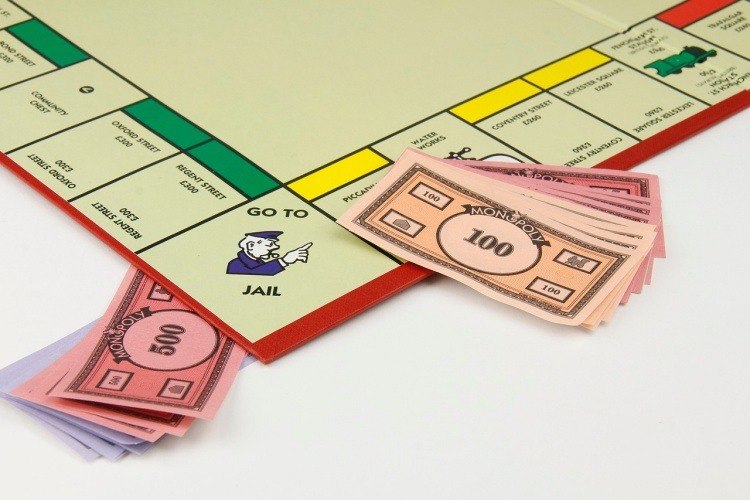Bail Bonding Misconceptions Popularized by Movies and TV
News and Resources
Popular culture has always had an outsized influence on how people perceive the world around them. That's particularly true when it comes to TV shows and movies like Perry Mason, Law & Order or Dirty Harry. In the service of drama, these movies and TV shows promote a version of the justice system that is at best marginally accurate. It's not that they try to intentionally deceive anyone, it's just that Hollywood's version of the bail bond agent is, for narrative purposes, different from what you’ll encounter if you need affordable bail bonds in Jefferson County, Denver County or Golden. In this post, we're going to look at some of the most popular misconceptions about bail propagated by movies and TV.
The Bail Bond Company: Popular Culture vs Reality
Movies and TV shows take a lot of liberties with reality. For instance, they'll show a gun going off in an enclosed space like an elevator and nothing happening to the people in that space. In reality, they'd emerge barely able to hear and might have tinnitus for the rest of their lives. Same with Hollywood and bail. The reality of the bail bond system does not lend itself to dramatic tension and so producers and directors exercise creative license and take liberties. Below are some of the most common deviations from the real world you'll see in movies and TV.
Misconception 1: The judge almost always sets bail
Let’s say you’re a director and you have a choice between showing your main character having his bail decided by a printed bail schedule, or you could put them in front of a judge and create some courtroom tension. Which would you choose? If you hope to have a long career in Hollywood you’ll place your guy in a courtroom where some world-weary judge sets bail after a fiery exchange with the star.
In reality, most people's bail is determined by the police reading from a bail schedule. It's only a small percentage of defendants who are held over for a bail hearing where they appear before a judge or magistrate. And just for the record, even if someone is held for a bail hearing such hearings are typically unspectacular. In fact, many defendants choose to appear without a lawyer at such hearings.
Misconception 2: One and done
One of the most popular myths you'll see propagated by TV and films is that the defendant only gets one phone call and must choose between calling the bondsman or a loved one. Such a choice can create some nifty tension but has nothing to do with the reality of the situation. In the real world, you can make as many phone calls as you want as long as you can get someone to accept a collect call.
But why, you say, do you need to make a collect call? Why can't you just use your cellphone? Because it's not allowed. One of the first things the police will do when processing you after arrest is take your mobile phone. So it's collect calls or no calls. Bail bondsmen will almost always accept a collect call. To them, it's the price of doing business. And after you talk to the bondsman you can go ahead and call anyone else you think will accept a collect call.
Misconception 3: Bail Is denied
In the current climate, it is tough enough in some states to get the state to impose any bail, let alone deny bail. And yet, movies and TV shows often portray scenarios where the defendant is denied bail for one technicality or another. Let's face it, it makes for a more compelling story if the defendant is forced to sit behind bars while awaiting their day in court than if they're allowed to go back to work and have dinner with their family.
While it’s not unheard of for bail to be denied it’s typically only done if the defendant has a history of violent offenses, or has skipped bail in the past, or is accused of a particularly egregious crime. In most cases, they’ll make a call to the bonding company and be released in short order.
Misconception 4: Bail = freedom
When characters in films or TV shows do get bailed out they’re typically shown acting like nothing happened. They go about their lives in an unfettered fashion, maybe even hanging with their buddies on a night out. It’s as if they beat all the charges against them and are free to live their life as if nothing happened.
In reality, bail almost always comes with conditions. For instance, it's not unusual for defendants to be ordered to stay a certain distance from the plaintiff and their family. Many defendants are also compelled to wear tracking devices around their ankles or wrists. And many are forbidden from drinking alcohol or hanging out in bars or clubs. There may even be cases where the defendant is placed under house arrest while on bail, although that's pretty rare.
A Few Final Thoughts From Our 24/7 Bail Bondsmen
The long and the short of it is that the way that bail and the bail bond agent are portrayed on TV and in films can be misleading. Obtaining bail rarely involves bail hearings, bail is almost never denied, you can make as many phone calls as you like and people out on bail are not free to do whatever they want.
If you or a loved one needs 24-hour bail bonds in Arapahoe County, Denver or elsewhere, call Tayler Made Bail Bonding at 303-623-0399.
Contact Info
Tayler Made Bail Bonding is available 24 hours a day and 7 days a week.
(303) 623-0399email@taylermadebailbonding.com
3595 South Teller Street
Suite 300A
Lakewood, CO 80235
@TaylerMadeBail

